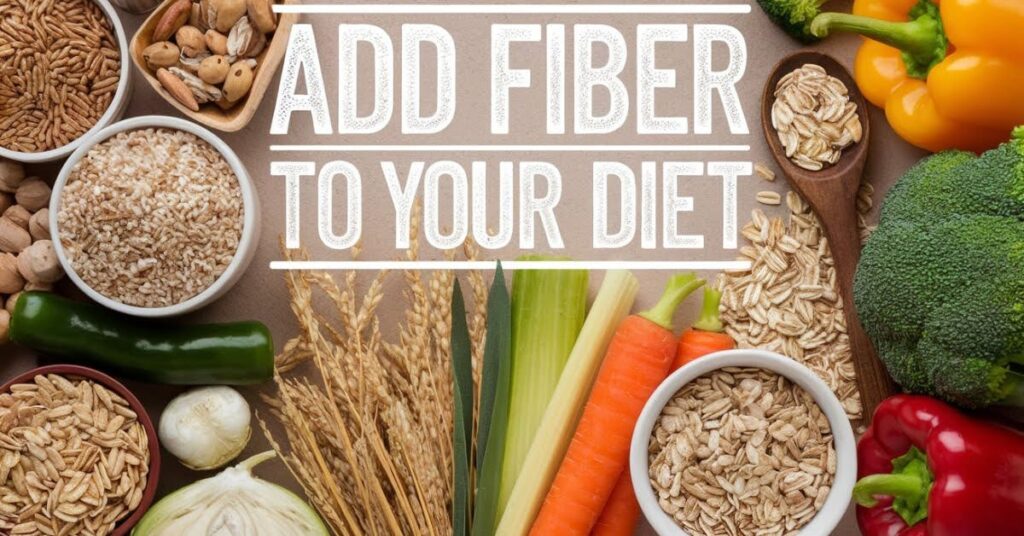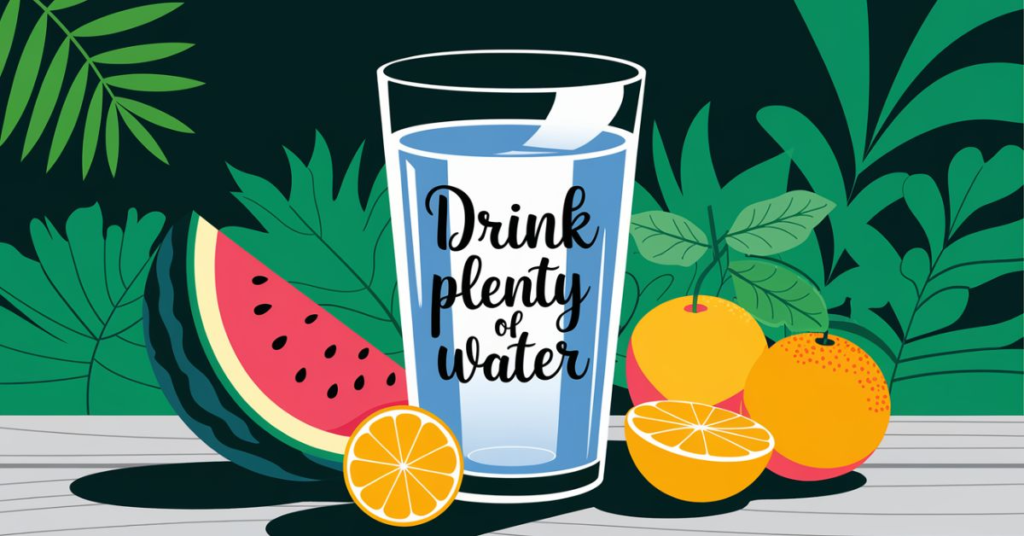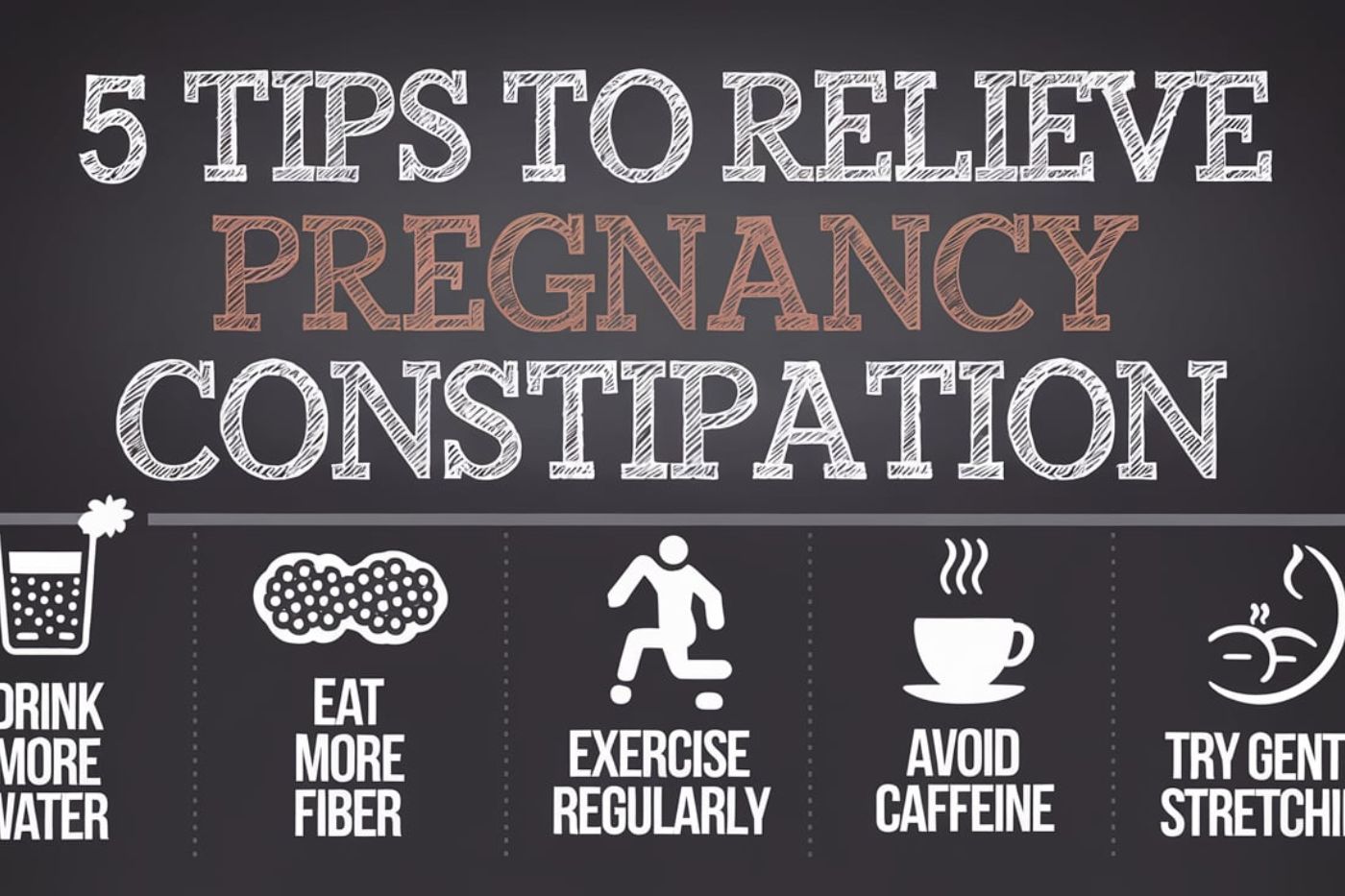Pregnancy brings joy, but it often comes with some unwelcome guests. Pregnancy constipation is one such visitor that many moms-to-be face. It’s not fun, but don’t worry – you’re not alone in this struggle.
Let’s dive into the world of pregnancy constipation relief. We’ll explore five practical tips that can help you find comfort during this special time. These strategies are safe, simple, and backed by experts.
Ready to bid farewell to tummy troubles? Let’s get started on your journey to a happier, healthier pregnancy!
1. Add Fiber to Your Diet

When it comes to pregnancy constipation relief, fiber is your new best friend. This nutrient powerhouse can work wonders for your digestive system. Let’s explore how you can easily boost your fiber intake.
Whole grains are a great place to start. Swap your white bread for whole wheat, and try brown rice instead of white. These simple changes can significantly increase your fiber intake. Remember, every little bit counts when you’re aiming for pregnancy constipation relief.
Fruits and veggies are fiber superstars too. Apples, pears, and berries are not only delicious but also packed with fiber. Don’t forget about leafy greens like spinach and kale. They’re nutrient-dense and can help keep things moving smoothly.
Legumes are another excellent source of fiber. Beans, lentils, and chickpeas can be easily added to soups, salads, or eaten as sides. These fiber-rich foods not only aid digestion but also provide essential nutrients for your growing baby.
2. Drink Plenty of Water

Hydration is key when tackling pregnancy constipation. Water helps soften stool and keeps things moving through your digestive tract. Let’s look at some easy ways to up your water game.
Start your day with a glass of water. Keep a water bottle handy and sip throughout the day. This simple habit can make a big difference in your hydration routine. Remember, consistent water intake is crucial for pregnancy constipation relief.
Don’t just stick to plain water. Herbal teas and fruit-infused water can add variety to your fluid intake. These tasty alternatives can make staying hydrated more enjoyable. Just avoid caffeinated drinks, as they can contribute to dehydration.
Consider water-rich foods too. Cucumbers, watermelon, and zucchini have high water content. These foods not only hydrate but also provide essential nutrients. It’s a win-win for your body and your baby!
3. Get Active with Regular Exercise

Regular exercise isn’t just good for your overall health – it’s a fantastic tool for pregnancy constipation relief. Let’s explore how staying active can help keep your digestive system on track.
Walking is a simple yet effective exercise. A brisk 15-minute walk can stimulate your bowels. Try to fit in a walk after meals when possible. This gentle physical activity can work wonders for your digestion.
Swimming is another excellent option for pregnant women. The water’s buoyancy makes it easy on your joints while providing a full-body workout. Plus, the gentle pressure of water can help stimulate your digestive system.
Don’t forget about prenatal yoga. This low-impact exercise can help improve digestion and reduce stress. Many yoga poses gently massage your internal organs, promoting better bowel function.
5 Fun, Pregnancy-Safe Exercises That Can Benefit Mom and Baby
Staying active during pregnancy is crucial for both mom and baby. Here are five enjoyable exercises that are safe and beneficial:
1. Prenatal Swimming: This low-impact exercise provides a full-body workout. The water’s buoyancy supports your growing belly while you exercise. Swimming can help ease back pain and improve circulation.
2. Pregnancy Pilates: This exercise focuses on your core and pelvic floor muscles. It can help improve posture and reduce back pain. Pilates also prepares your body for labor and delivery.
3. Gentle Hiking: Walking in nature can boost your mood and provide gentle exercise. Just stick to flat, even trails and wear supportive shoes. Remember to stay hydrated during your hike.
4. Stationary Cycling: This is a great way to get your heart rate up without putting stress on your joints. It’s especially beneficial in the later stages of pregnancy when balance becomes trickier.
5. Prenatal Dance Classes: Many studios offer dance classes designed specifically for pregnant women. These classes are fun, social, and provide a great cardiovascular workout. Always listen to your body and avoid any moves that feel uncomfortable.
Related Reading
For more information on staying active during pregnancy, check out these resources:
- “Pregnancy Workouts: Best Exercises for Pregnant Women” by What to Expect
- “Exercise During Pregnancy” by the American College of Obstetricians and Gynecologists
- “The Pregnant Athlete: How to Stay in Your Best Shape Ever–Before, During, and After Pregnancy” by Brandi Dion, Steven Dion, and Joel Heller
4. Talk With Your Doctor or Midwife About Supplements

When it comes to pregnancy constipation relief, supplements can play a crucial role. But it’s important to consult with your healthcare provider before starting any new regimen. Let’s explore some common supplements that might help.
Magnesium is often recommended for constipation relief. It helps draw water into the intestines, softening stool. the right dosage is crucial during pregnancy. Your doctor can guide you on the appropriate amount for your needs.
Probiotics are another supplement to consider. These beneficial bacteria support gut health and can improve digestion. Look for strains specifically studied for pregnancy constipation. Your healthcare provider can recommend safe and effective options.
Iron supplements, while necessary for many pregnant women, can sometimes contribute to constipation. If you’re taking iron, discuss with your doctor about adjusting the dosage or switching to a more gut-friendly form.
Read this Blog: Pregnancy Acne Areas: Top 3 Questions, Answered
Pregnancy by the Month: What to Expect
Understanding your pregnancy journey can help you prepare for various changes, including potential digestive issues. Here’s a brief overview:
First Trimester (Months 1-3):
- Morning sickness may begin
- Fatigue is common
- Breast tenderness often occurs
Second Trimester (Months 4-6):
- Energy levels typically increase
- Baby’s movements become noticeable
- Pregnancy constipation may start or worsen
Third Trimester (Months 7-9):
- Frequent urination increases
- Backaches are common
- Preparation for labor begins
Remember, every pregnancy is unique. Always consult with your healthcare provider about any concerns or changes you experience.
Related Reading
To deepen your understanding of pregnancy and its various stages, consider these resources:
- “What to Expect When You’re Expecting” by Heidi Murkoff
- “The Mama Natural Week-by-Week Guide to Pregnancy and Childbirth” by Genevieve Howland
- “Ina May’s Guide to Childbirth” by Ina May Gaskin
5. Ask Your Doctor or Midwife About Over-the-Counter (OTC) Medications

When natural methods aren’t providing enough pregnancy constipation relief, it might be time to consider OTC options. it’s crucial to consult your healthcare provider before taking any medication during pregnancy.
Stool softeners are often the first line of OTC medications recommended for pregnancy constipation. These work by drawing water into the intestines, making stools easier to pass. Always follow the dosage instructions provided by your doctor.
Bulk-forming laxatives are another option to discuss with your healthcare provider. These work by absorbing water to form soft, bulky stools. While generally considered safe during pregnancy, it’s important to use them under medical guidance.
Glycerin suppositories might be suggested for occasional use. These work quickly to stimulate bowel movements. they should only be used sparingly and with your doctor’s approval.
Final Words
Navigating pregnancy constipation can be challenging, but you’re now armed with effective strategies for relief. Remember, every pregnancy is unique, so what works best may vary from person to person.
Incorporating fiber-rich foods, staying hydrated, and maintaining a regular exercise routine are key pillars of pregnancy constipation relief. These lifestyle changes not only ease digestive discomfort but also contribute to overall pregnancy wellness.
Don’t hesitate to reach out to your healthcare provider if you’re struggling with persistent constipation. They can offer personalized advice and, if necessary, recommend safe OTC medications. Your comfort and health are paramount during this special journey.
Frequently Asked Questions
How common is constipation during pregnancy?
Constipation affects up to 50% of pregnant women, making it a very common issue.
Can prenatal vitamins cause constipation?
Yes, some prenatal vitamins, especially those high in iron, can contribute to constipation.
Is it safe to use laxatives during pregnancy?
Some laxatives are safe, but always consult your doctor before using any medication.
How much water should I drink for pregnancy constipation relief?
Aim for 8-10 glasses (64-80 ounces) of water daily, unless otherwise advised by your doctor.
Can constipation harm my baby?
While uncomfortable for you, constipation doesn’t directly harm your baby. severe cases should be addressed.

Zade Smith is a Proficient writer on TechsBlip, dedicated to delivering high-quality content that bridges the gap between medical research and accessible, reader-friendly guidance. With a keen interest in promoting healthy lifestyles and disease prevention, Zade’s writing offers expert insights, actionable tips, and evidence-based information to help readers make informed decisions about their health and wellness

